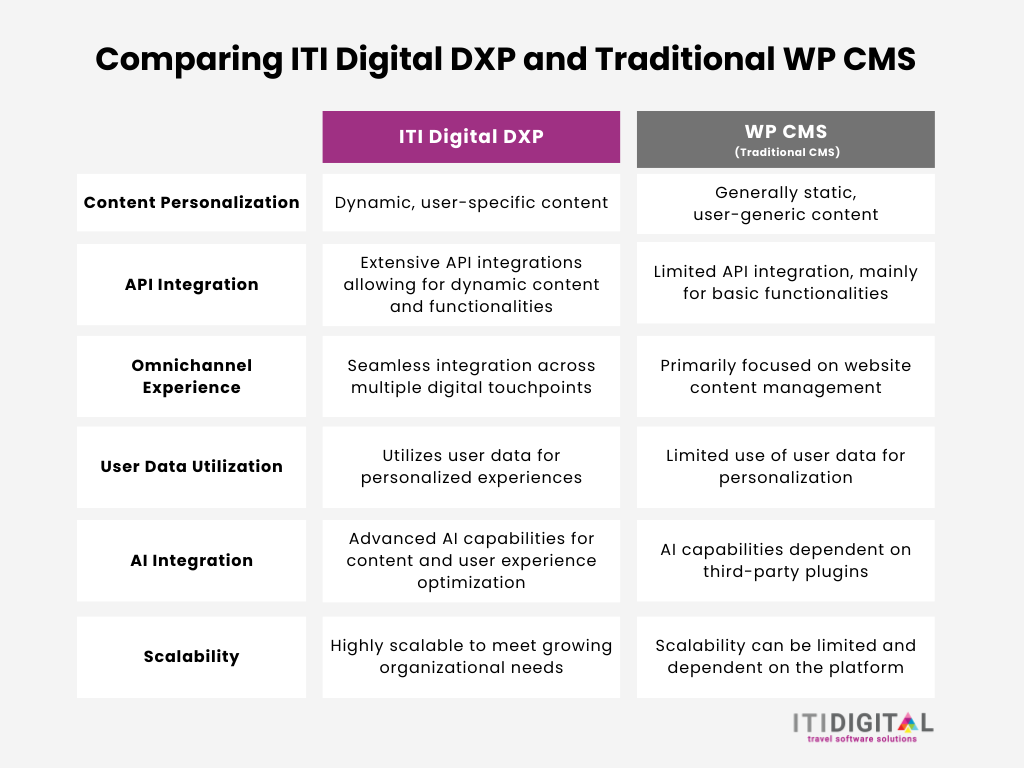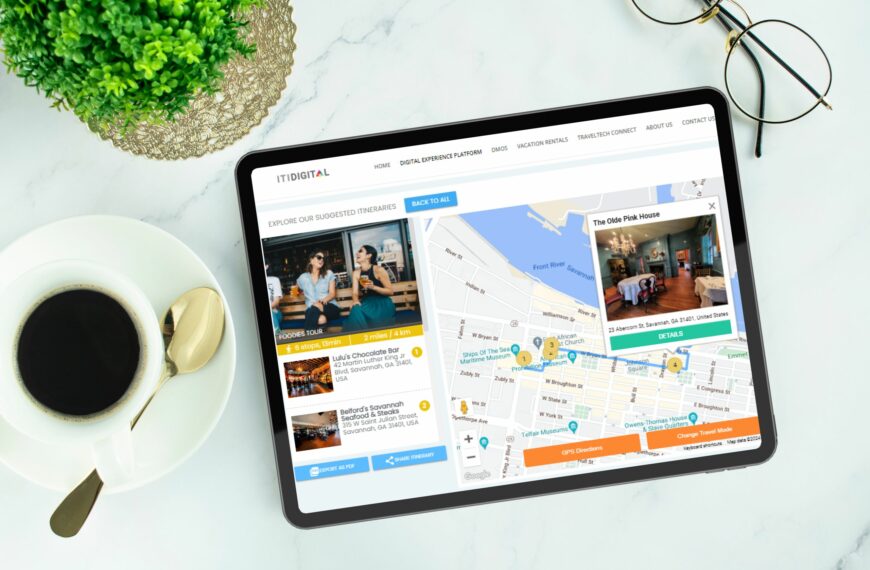In today’s digital age, where personalized and dynamic content reigns supreme, the travel industry is rapidly adopting advanced technologies to meet evolving consumer expectations. One such technology is the Digital Experience Platform (DXP), a sophisticated software framework that helps businesses manage, deliver, and optimize experiences across a wide range of digital touchpoints.
A CMS is primarily designed to manage and publish content on websites. Traditionally, it handles static content—like text, images, and videos—that doesn’t change dynamically for each visitor. It’s a great tool for creating, managing, and modifying website content without needing deep technical knowledge.
On the other hand, a DXP goes several steps further. It’s not just about content management; it’s about delivering personalized, dynamic experiences to users. One of the ways it does this is by integrating with various external systems and services through APIs (Application Programming Interfaces).
Comparative Analysis of DXP with Traditional CMS
Here’s the basic differentiation:
- CMS: Delivers mostly static content. The content is the same for every visitor, and while CMSs can have some dynamic features, they’re limited in scope and personalization.
- DXP: Accepts and manages content through APIs, which allows it to integrate a wide array of external data and services. This capability enables the DXP to deliver dynamic content that can change based on who the user is, their behavior, or real-time data. For example, a travel site powered by a DXP could show different content or travel recommendations based on the user’s past interactions, current location, or even weather conditions.

In essence, while a CMS can serve as the backbone for a website, a DXP is designed to orchestrate a broader, more personalized user experience across various digital touchpoints. This makes DXPs particularly valuable for industries like travel, where personalization and real-time information can significantly enhance the customer journey.
Digital Experience Platforms in the Travel Industry
In the context of the travel industry, where customer engagement and personalized experiences are paramount, a DXP offers significant advantages. It empowers travel businesses to deliver content that resonates with individual users, adapts to their preferences, and engages them across various digital channels, from websites to mobile apps and social media platforms.
For instance, when a user searches for travel destinations, a DXP can dynamically present the most relevant content, offers, and recommendations based on the user’s past interactions, preferences, and real-time data. This level of personalization and interactivity can significantly enhance the user’s experience, increasing the likelihood of booking and fostering loyalty.
Moreover, the API-driven nature of DXPs enables seamless integrations with various external services and applications, enriching the content ecosystem and providing users with comprehensive and up-to-date information. This is particularly crucial in the travel industry, where information such as flight schedules, accommodation availability, local attractions, and events needs to be constantly updated and integrated from various sources.
About ITI Digital
ITI Digital is setting the standard for digital experience in the travel industry with our innovative DXP platform. Integrating advanced AI within our SaaS Places and Events content modules, ITI Digital empowers DMOs to deliver content that is not just relevant but also highly engaging and personalized. Our platform is designed to meet the evolving needs of the travel industry, ensuring that businesses can offer connected, memorable experiences that today’s travelers expect. With ITI Digital, elevate your digital strategy and become a leader in the new era of travel marketing.






